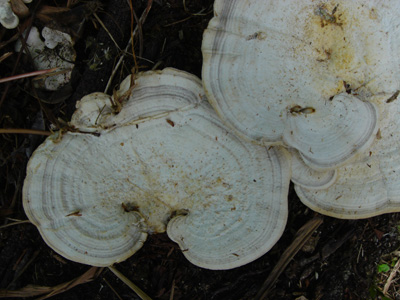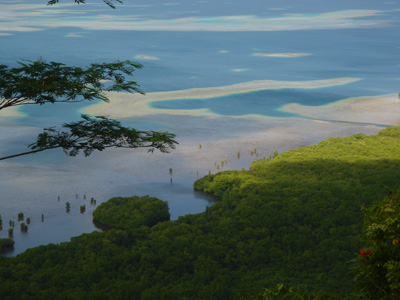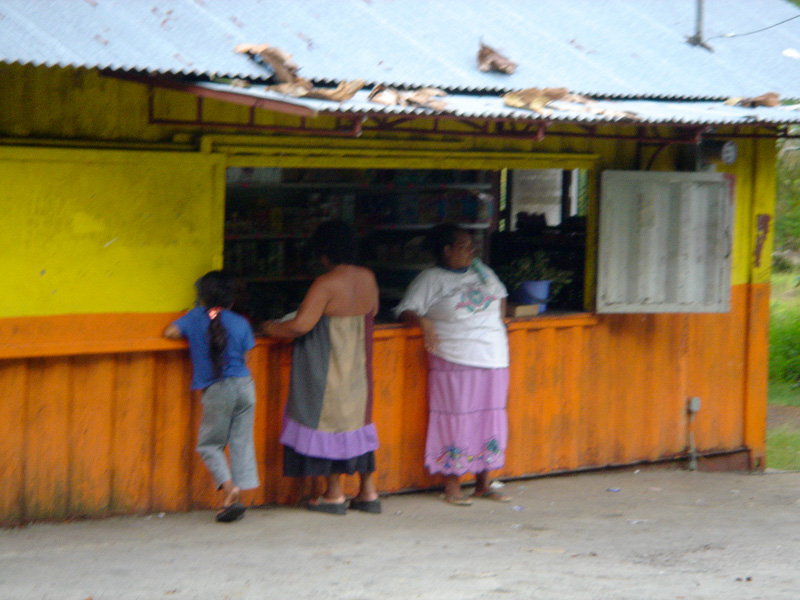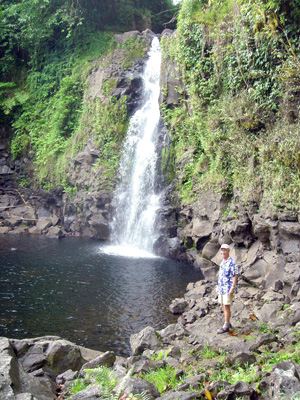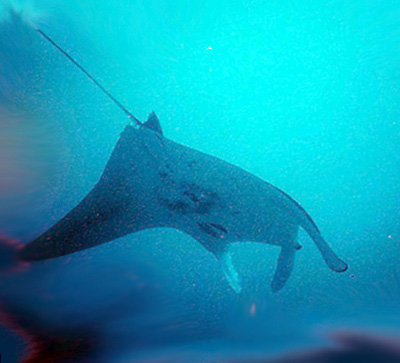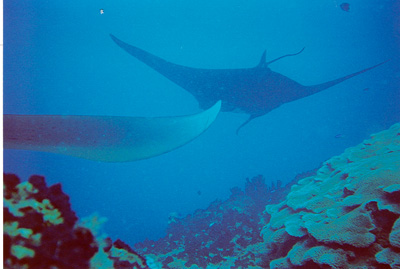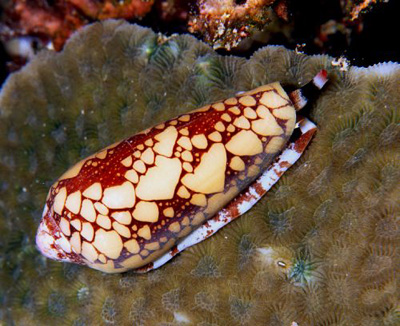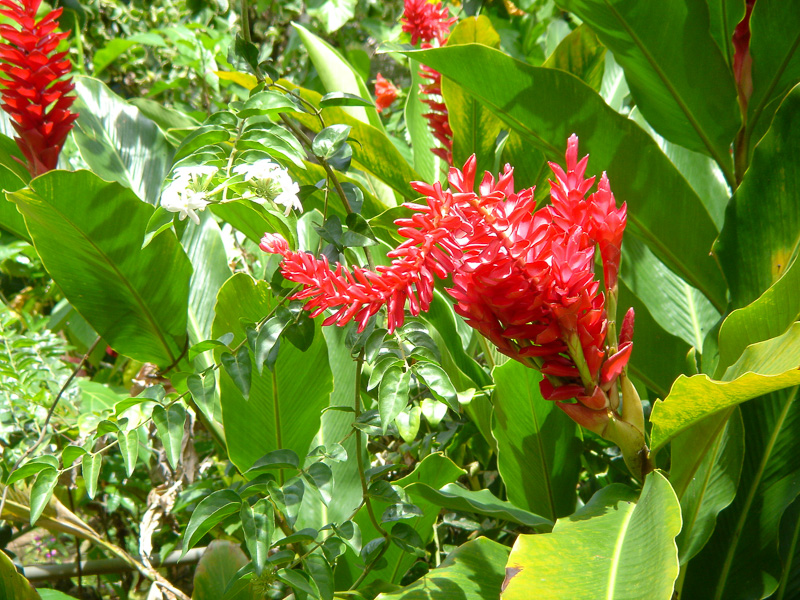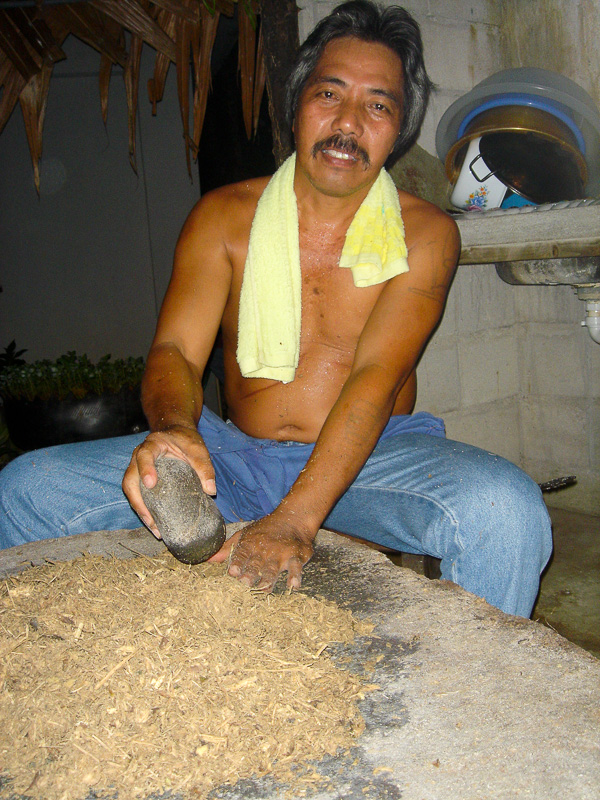
Last night we went to a party at Elizabeth's, the Pompeian woman we met the other night. A couple of shirtless guys were sitting in the open pavilion of her cook-house with a big flat rock resting on a pair of old tires; they were pounding a large mound of pepper-root with rounded stones: sakau. The big flat stone must have been very hard, for it rang like metal. I was of course fascinated by the drug preparations, so talked to the main guy, he had a mustache, reminded me a bit of my Filipino friend Bataan whom I got high with at Naropa some twenty years ago. He said the Pohnpeian sakau is better than Fijian kava; it's the roots of a slightly different pepper plant, also in Fiji they dry the roots and grind them into powder which they squeeze in a cloth back in a bowl of water. But in Pohnpei, they make their potion right from the roots, albeit moistening the roots with a cup or two of water. “Bataan” (I forget his real name) and his partner pounded the big flat rock for a long time when they were done pulverizing the roots. Like a dinner bell. A few people drifted into the cook house, though many others were circulating in the yard, drinking wine, sodas and fresh coconuts. A long table of food was nearly ready to be served.
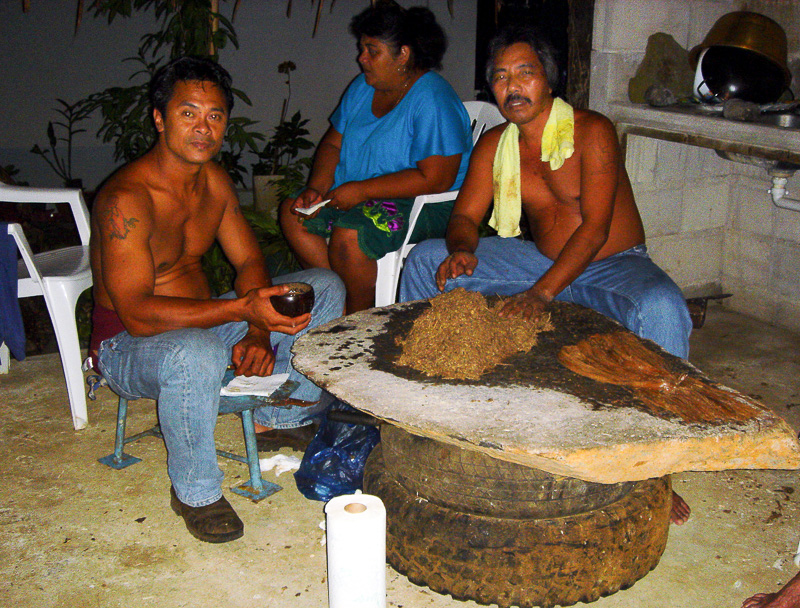
Bataan laid out a long strip of fabric-like hibiscus bark, mounded a couple of pounds of pulverized pepper root on it, wrapped the bark around the root making a kind of tamale the size of his arm, then twisted the bark to squeeze out thick slimy juice. He mixed the first bit of juice back into the pepper pulp, added a cup of water to the pulp, wrapped and squeezed again, this time catching some of the juice in half a coconut shell. He offered some to Embry, the oldest guest, Embry had a sip, and a little later I got a couple of sips as well. I'd been wondering if I should have any, what with wanting to stay sober, but in the end I just had to see how it was.
Thankfully the effects weren't very strong for me. I felt a little tired, a little more relaxed, and just a shade zonked. Rather than wanting a whole lot more as I would have in the old days, my reaction was to remember that I don't like feeling zonked anymore. So I left it at that. They guys doing the squeezing were goin' for it for sure, they said they could get visions from it. They continually squeezed the roots for next several hours. Two American ex-pat guests were really into it, said they'd been doing sakau for years, I'd been talking to them beforehand, they had that weathered slightly off-kilter vibe of long-term stoners, like some interplanetary probe ship whose skin has been pitted and etched by the dust and hard radiation of outer space. Watching the world on instant replay. Calling mission control.
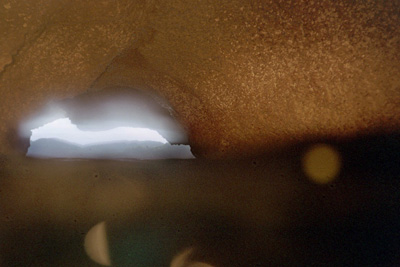
The sakau makers had repetitive chanting music playing on a boom-box, it was special music for a sakau party, and in fact the music was recorded by a local guy called Lorenzo, who's said to have a chance of becoming the next king of the Nett district of Pohnpei. A very dignified older native lady was there, she was the mother of this Lorenzo, it turned out. She'd look at me with level eyes, but wouldn't bother to smile. I'm like this three-foot-tall green alien from a UFO, an interloper in her court. Actually at the end, she smiled very pleasantly when I managed a native word which means hello or goodbye: kasalehlei.
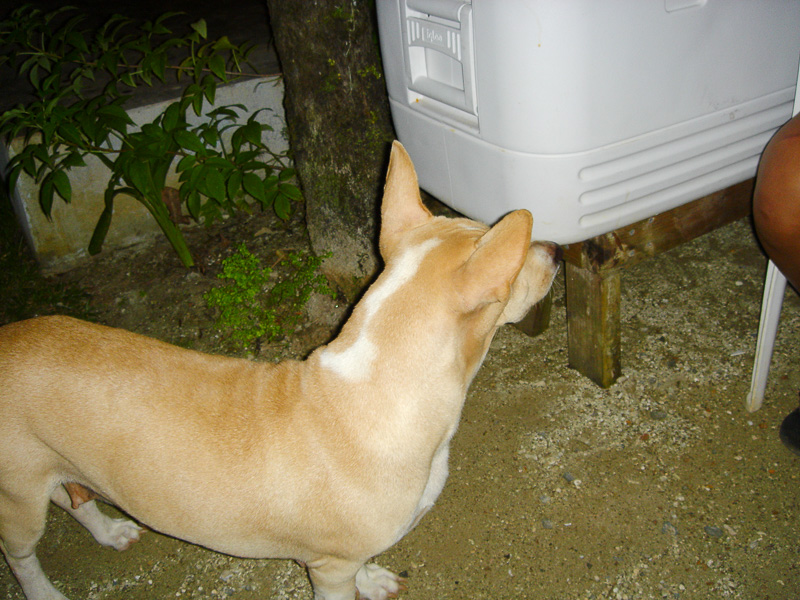
The food was amazing. A suckling pig, a steamed fish half as big as a pizza, a mound of tuna sashimi, a mound of grilled chicken, white yams, taro, breadfruit, pineapple so ripe that even the centers of slices were soft and sweet, curried chicken, red and white rice, pickled cabbage, and three kinds of bananas: boiled in coconut milk, fried, and mashed. No green vegetables; maybe they don't matter after all.
Embry and I really were quite tired after a while, what with the sakau and my triathlon; we went home about ten. I let Embry drive.









